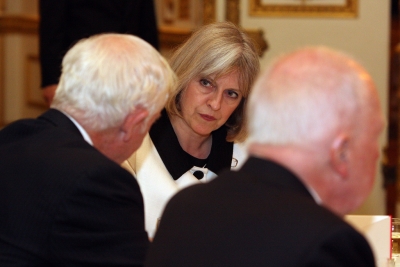In January, Prime Minister Theresa May outlined her vision for a ‘Shared Society’, which would see central government play a more active role in delivering social reform and tackling ‘everyday injustices.’
In contrast to David Cameron’s ‘Big Society’ agenda, which focused on the contribution that charities, social enterprises and volunteer groups could make, Prime Minister May says that “it is the job of government to encourage and nurture these relationships and institutions where it can.”
As yet, the rhetoric of a ‘Shared Society’ has not been accompanied by many concrete policy proposals – only a few clues. Funding commitments have been made in support of mental health, with £15 million going towards local services and £67 million towards new digital mental health initiatives.
New links between GPs, teachers, and mental health services might be the beginning of a wider collaboration between different actors within society, helping one another to achieve potential and creating efficiencies in the process. This could encompass health, education, social care and housing, among other policy areas.
A ‘Shared Society’ is an attractive electoral theme for the Conservative Party, partly because it is focused on the ‘ordinary working families’ whom the Prime Minister is so keen to attract, and whom Chancellor Phillip Hammond mentioned so frequently in his Budget speech last week. A ‘Shared Society’, in combination with a greater emphasis on listening to immigration concerns, is part of May’s plans to tackle the broad political disillusionment that played such a pivotal role in the Brexit vote.
In addition, a ‘Shared Society’ has the potential to directly address the demand to ‘take back control’, heard so frequently during the referendum campaign. May’s new vision could, if executed well, provide people with the tools to shape their own lives and achieve self-empowerment through community projects. The New Economics Foundation, for example, is urging the Prime Minister to study examples such as the Yorkshire Borough of Kirklees, where more than 130 user-led and voluntary groups received council funding to provide innovative kinds of care for older and disabled people.
By appealing to ‘ordinary’ people, the Conservatives are hoping to erode Labour’s image as the party of the left behind. How can Labour respond to this? Labour could choose to accept the premises of the ‘Shared Society’, but continually hold the Conservatives to account over whether their policies are actually countering ‘everyday injustices’. Labour can ask what impact increased funding has actually had for those with mental health conditions. They must scrutinise the impact that policy proposals such as the expansion of grammar schools have on social mobility – they may even find themselves supported by a few Conservative backbenchers on this point.
Another option is to question the premises of the ‘Shared Society’ altogether. Labour can point to the lack of attention paid to the plight of the poor – the ‘not managing’, as opposed to the ‘just about managing’. Huge social and economic inequality, and recent benefit cuts, would form part of this argument, as might the lack of focus in Hammond’s budget on significant social reform in aid of the worst-off.
Labour might also highlight another potential weakness with the ‘Shared Society’ vision – does such a competitive, individualistic society, in which people endlessly compete to climb the economic ladder, really offer the best environment for good mental health? Increasing funding for specific mental health services and digital initiatives may only tackle the symptoms of a deeper problem.




